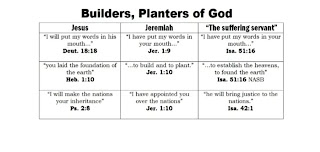Philippians 2:1-18: READ
Context is about Christians not being selfish and our example is Jesus, as always;
V.5 the subject is the historical human Messiah Jesus not some preexistent Son, “being.”
Anthony NT Commentary: When Paul speaks of “Messiah Jesus” he means “the man Messiah Jesus” in his fundamental and easy creedal statement in 1Tim. 2:5. The man, the historical Messiah Jesus, was indeed in the image of God, and was the visible image of the invisible God (Col. 1:15). Paul knew of no second Person of the Trinity who was alive before coming into existence in the womb of his mother Mary (Lk. 1:35). Mary is “the mother of my lord” (Lk. 1:43; cp. adoni, my lord, Ps. 110:1), certainly not “the mother of God.” “Mother of God” is a blasphemous title suggesting that the mother is somehow superior to GOD!
NOTE translator's corruption of scripture in Phil 2.6!
- The NIV "being in very nature [morphe] God";
- He "always had the nature of God" (Today's English Version)
- "being essentially one with God" (Amplified Bible)
- "He was God” (Living Bible)
The meaning of morphe, "form":
While on earth he had authority, power, and glory of God. Again, nothing about some “time before time.”
The Gk. morphe simply means “form” in LXX, Septuagint: Isa 44.13LXX; Job 4.16a LXX; 4 Maccabbeans 15.4 LXX
The human Jesus had the appearance of a normal male: see Isa 53:2 “nothing beautiful or majestic about his appearance.”
The human Jesus “emptied himself,” i.e., the context has to do with “selfish ambition, pride,” self-interest, etc.
Although “existing in the form of God,” he didn’t misuse his authority, power, teachings that God the Father gave him! See v.8 “he humbled himself.”
Cp. Amthony, Phil 2:17: Paul was being poured out, just as Jesus emptied himself. The reference is to Isa. 53:12: “poured himself out,” the selfless devotion of the suffering servant. Paul saw himself in the same category as the suffering servant, who is primarily the Messiah Jesus. Paul applied Isa. 42:6; 49:6 to himself and Barnabas in Acts 13:47.
Suffering Servant of Isaiah Allusions:
TDNT notes the link between “emptied himself” (Phil. 2:7) as an exact translation of “his soul…he poured out” (Is. 53:12).
Elsewhere, the Hebrew verb meaning “to lay bare, expose” or “to pour out” in the LXX and Hexapla versions usually render it by “emptying” LXX Gen. 24:20; 2 Chron. 24:11; Ps. 137:7.
The use of Isa 53.12 shows that the expression [he emptied himself] implies the surrender of life, not the kenosis of the incarnation";
Further similarities in language include: contrast between humiliation and exaltation; willingness to be humbled, and the mention of obedience unto death.
Other NT allusions: the hymn to Christ in 1 Peter 2:22-25 as a short summary of Isaiah 53.
The song of Simeon in Luke 2:29-32 takes up Isaiah 49:6 and refers this servant saying to Jesus.
Paul's Point! The super-exaltation of the supreme servant of YHWH, God the Father: Phil 2:9; Isa 52:13.
Adam Christology Parallels: https://thehumanjesus.org/2022/01/13/adam-christology-philippians-2/


